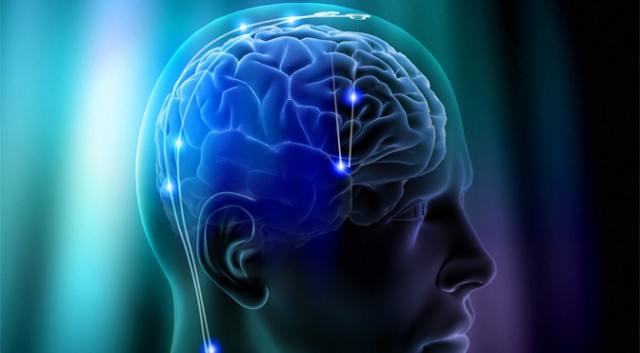Study: Brain stimulation can work–if properly timed

—–
Electrical Stimulation To Boost Memory: Maybe It’s All In The Timing (NPR):
“People with a brain injury or dementia often struggle to remember simple things, like names or places. In research published Thursday in the journal Current Biology, scientists have shown it may be possible to improve this sort of memory using tiny pulses of electricity — if they’re properly timed…They tried the approach with a group of patients who had severe epilepsy.
These people already had electrodes temporarily implanted in their brains as part of their treatment. And that gave the scientists a way to deliver tiny pulses of electricity to areas deep in the brain…
“When memory was predicted to be poor,” he explains, “brain stimulation enhanced memory, and when it was predicted to be good, brain stimulation impaired memory.”
In other words, on a bad memory day, stimulation helped. On a good day, it hurt.
When stimulation was delivered to the right place at the right time, the researchers found, it could improve memory performance among the patients by as much as 50 percent.”
The Study
Direct Brain Stimulation Modulates Encoding States and Memory Performance in Humans (Current Biology)
- Summary: People often forget information because they fail to effectively encode it. Here, we test the hypothesis that targeted electrical stimulation can modulate neural encoding states and subsequent memory outcomes. Using recordings from neurosurgical epilepsy patients with intracranially implanted electrodes, we trained multivariate classifiers to discriminate spectral activity during learning that predicted remembering from forgetting, then decoded neural activity in later sessions in which we applied stimulation during learning. Stimulation increased encoding-state estimates and recall if delivered when the classifier indicated low encoding efficiency but had the reverse effect if stimulation was delivered when the classifier indicated high encoding efficiency. Higher encoding-state estimates from stimulation were associated with greater evidence of neural activity linked to contextual memory encoding. In identifying the conditions under which stimulation modulates memory, the data suggest strategies for therapeutically treating memory dysfunction.


